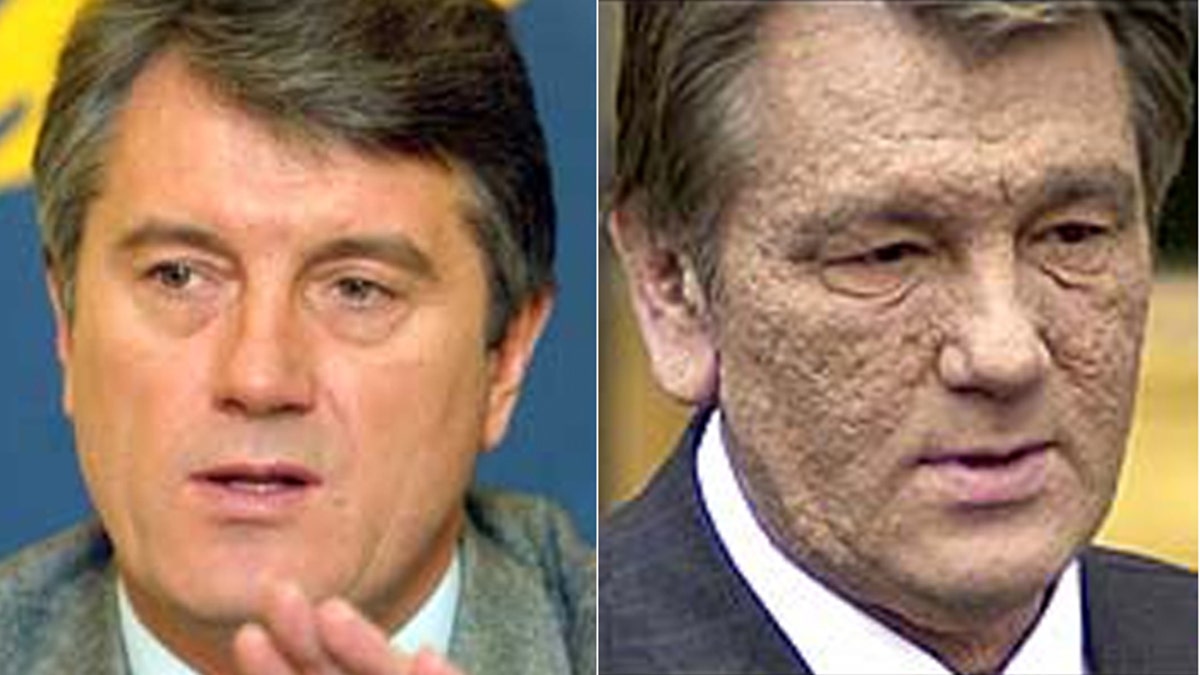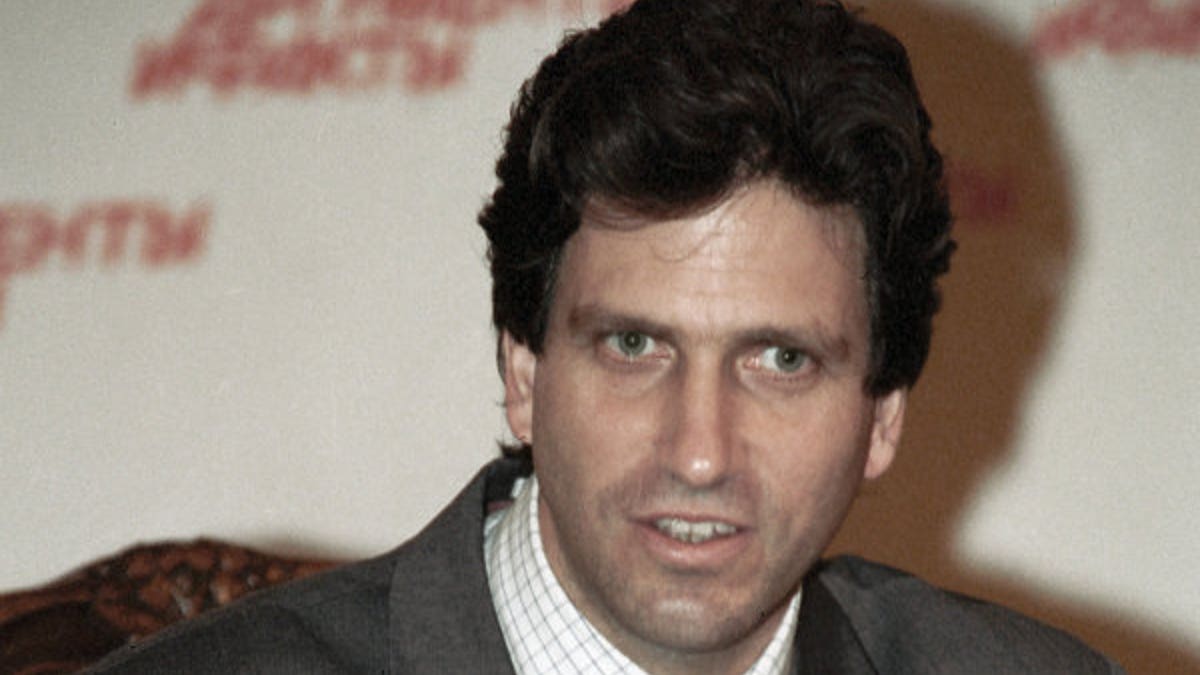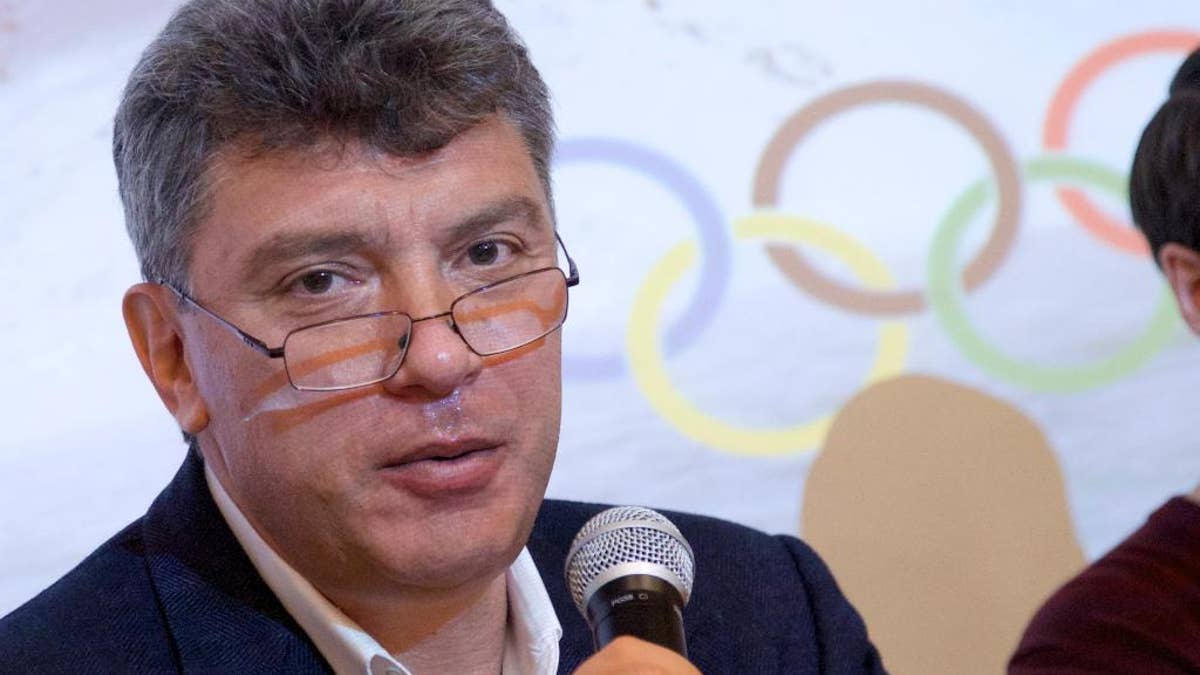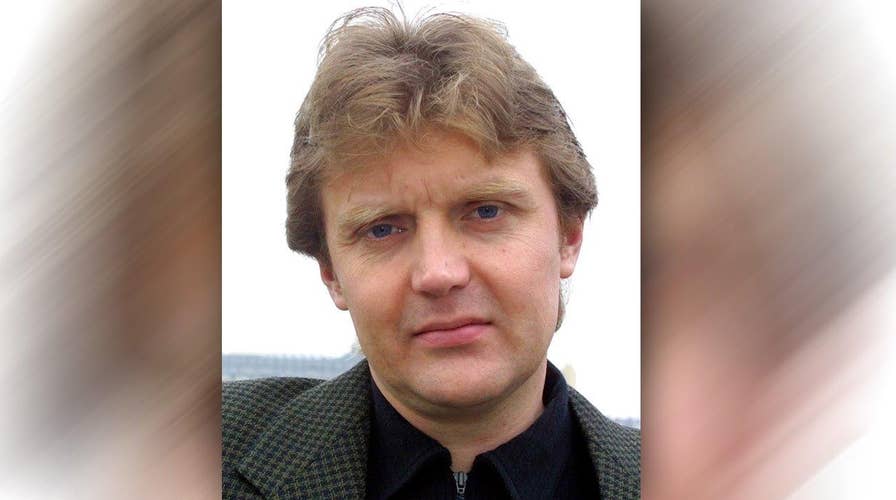Moscow: Litvinenko inquest had 'one goal from the beginning'
Reaction from Christopher Swift, Georgetown University national security studies adjunct professor
Crossing Vladimir Putin carries a high price.
Whether they are poisoned, gunned down on the streets of Moscow or blown to bits in their homes, people who have crossed or merely criticized the Russian president have turned up dead around the world.
A British judge's finding that Putin likely gave the green light to the 2006 fatal poisoning in London of KGB agent-turned-dissident Alexander Litvinenko confirmed long-held suspicions in that case and lent credence to claims of Kremlin involvement in others like it.

(Former Ukrainian President Viktor Yuschenko's face was disfigured is a poisoning long blamed on the Kremlin. (Reuters))
"Today's report on the Litvinenko assassination just confirmed in a credible manner what we have known for a long time: that Putin is a cold blooded killer," Bill Browder, author of “Red Notice, A True Story of High Finance, Murder, and One Man's Fight for Justice,” told FoxNews.com. "If the British government Doesn't toughen up its current weak response, it basically gives Putin the green light to kill all of his enemies in London with impunity."
Browder, a Russia-based investor in the 1990s, recounts in his book details of the consequences he and his lawyer, Sergei Magnitsky, suffered at the hands of the Putin regime. Magnitsky was murdered in prison in 2009, after being arrested for exposing a $230 million tax fraud scheme involving law enforcement and government officials.

Forbes editor Paul Klebnikov was shot to death in Moscow in July 2004, after he reportedly uncovered a money-laundering scheme that reached the highest levels of the Kremlin.
Critics within Russia and the international community say too many of Putin’s enemies have been killed for the 63-year-old, who has run the country through the posts of either prime minister or president since 1999, to claim his hands are clean.
Among the more notable cases:
- Sergei Yushenkov was gunned down in front of his home in April 2003. Yushenkov was part of a commission that investigated claims the KGB orchestrated bombings to ignite support for Putin’s war against Chechnya. A second member of the commission was fatally poisoned, a third nearly lost his life after being severely beaten, and the attorney for the commission was imprisoned for espionage.
- Forbes editor Paul Klebnikov was shot to death in Moscow in July 2004, after he reportedly uncovered a money-laundering scheme that reached the highest levels of the Kremlin. Two suspects were charged, but later acquitted. He was one of more than 300 journalists in Russia who have disappeared or been murdered since 1993, according to a June 2009 report from the International Federation of Journalists.
- In June 2004, human rights advocate and professor Nikolai Girenko was assassinated in his home.
- Andrei Kozlov, a top official at Russia’s Central Bank who dedicated his career to eliminating money laundering, was killed in September 2006.
- Anna Politkovskaya, who wrote books and articles accusing Putin of human rights violations in Chechnya, was executed in an elevator in her Moscow apartment building on Oct. 7, 2006.
- Human rights attorney Stanislav Markelov was shot in the head in January 2009, as he left a press conference where he announced plans to sue the Russian government. Journalism student Anastasia Barburova was killed as she tried to intervene.
- Human rights journalist Natalia Estemirova, was killed in July 2009, after being kidnapped from her home in Chechnya.
- Last year, Kremlin critic Boris Nemtsov was gunned down as he strolled near the Kremlin, and just weeks before a documentary on Putin he helped produce was due out.
Like Litvinenko, former Ukrainian President Viktor Yushchenko was poisoned more than a decade ago in yet another case that raised suspicions of Putin's hand.
The world saw the effects of dioxin poisoning on the face of Yuschenko in 2004, when he was running for the office he held until 2010. The poisoning followed an assassination attempt, and although no one was ever charged, suspicion focused on the Kremlin which, in a twist that foreshadowed by a decade the current tension between Moscow and Kiev, may have feared Yuschenko would take Ukraine toward better relations with western Europe.

Nemtsov, a former Russian deputy prime minister and vocal critic of Putin, was gunned down in Moscow last year. (AP) (The Associated Press)
Litvinenko, who authored the Kremlin expose “Blowing up Russia,” and was living under asylum in Great Britain, was given a fatal dose of polonium in November 2006. The main suspect is reportedly former KGB agent and Putin crony Andrey Lugovoy, who has since been elected to Russia’s Duman, putting him out of reach of extradition laws.
Litvinenko, who lingered for three weeks in a British hospital, was loyal to the end to Russian oligarch Boris Berezovsky, a onetime billionaire who was in exile in Great Britain and leading a campaign against Putin when he, too, turned up dead. Russian officials say he hanged himself, but an independent autopsy found Berezovsky was attacked and hanged.








































